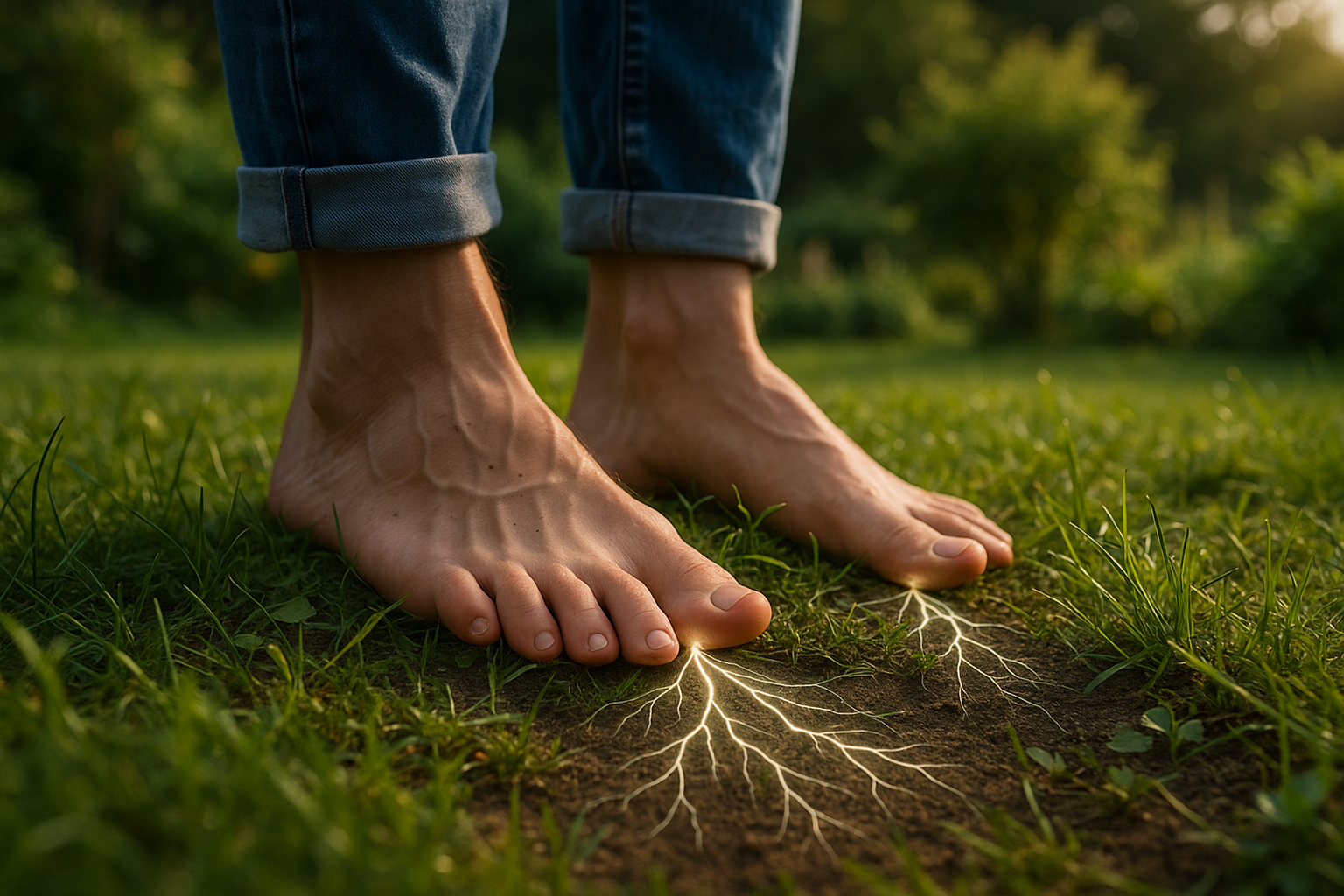Unveiling the Health Benefits of Grounding: The Earth's Natural Healing Power
What if the earth beneath your feet held a secret power? The very ground you walk upon might just be a solution to many of your health woes. This concept, known as "grounding" or "earthing," proposes that physical contact with the earth's surface can lead to significant health benefits. It's a concept that has been practiced for centuries but is only now gaining scientific credibility.

The Origins of Grounding
Grounding, in its essence, is the practice of connecting our bodies to the earth, typically through barefoot contact with the ground. It is a practice steeped in history, with roots in many indigenous cultures. Ancient civilizations revered the earth as a source of healing and life, often incorporating earth-based rituals into their healthcare practices.
The scientific investigation of grounding, however, is relatively recent. The first comprehensive study was published in 2004, which suggested that grounding could reduce inflammation, improve sleep, and enhance overall well-being. Since then, research has slowly started to validate these claims.
Grounding in Modern Health Practices
Today, grounding is gaining traction as a holistic health strategy. It has been associated with a range of health benefits, from reducing inflammation and pain to improving sleep and stress levels. While the mechanisms behind these effects are not completely understood, some scientists suggest that it might be related to the earth’s negative charge, which could neutralize harmful free radicals in our bodies.
The Science Behind Grounding
The idea that the earth’s electric charge can influence our health may seem farfetched, but preliminary research supports this theory. A 2012 study published in the Journal of Environmental and Public Health found that grounding could help reduce blood viscosity—a major risk factor for heart disease.
Another study in the Journal of Inflammation Research in 2015 showed that grounding could decrease inflammation and improve wound healing. These studies, among others, hint at the potential health benefits of grounding, though more research is needed to fully understand its effects.
Grounding: Pros, Cons and Considerations
Grounding is a simple and cost-free practice that anyone can incorporate into their daily routine. All it requires is some direct skin contact with the earth—be it through walking barefoot in the grass, gardening, or even lying down on the ground.
That being said, there are certain considerations to keep in mind. For one, urban living makes grounding more challenging due to concrete surfaces and a lack of green spaces. Grounding also carries a risk of exposure to parasites or fungal infections, so it’s essential to choose clean and safe areas for grounding practices.
Grounding: Key Facts and Tips
-
Grounding can be achieved through barefoot contact with the earth, gardening, or even swimming in natural bodies of water.
-
Early morning or late afternoon are believed to be the best times for grounding, as the earth’s energy is said to be the most intense.
-
For those living in urban areas, grounding mats and sheets are available that can be connected to the grounding port of a wall outlet.
In conclusion, grounding is a fascinating wellness strategy that links us back to our natural environment. While the scientific understanding of grounding is still evolving, early research indicates potential benefits for inflammation, heart health, sleep, and stress management. As with any health practice, it’s important to approach grounding with an open mind, balanced caution, and a dialogue with your healthcare provider.




